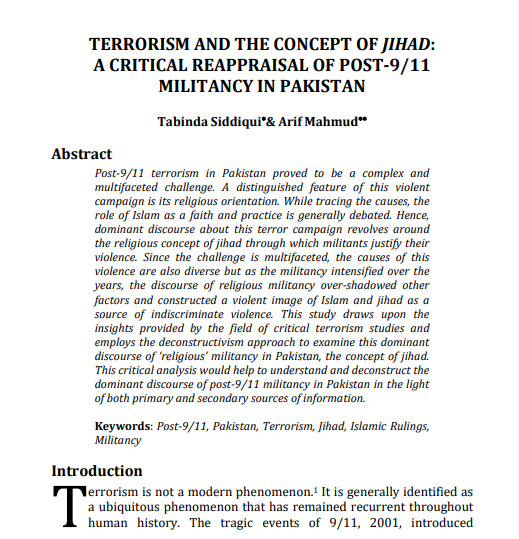TERRORISM AND THE CONCEPT OF JIHAD A CRITICAL REAPPRAISAL OF POST-9/11 MILITANCY IN PAKISTAN
Keywords:
Post-9/11, Pakistan, Terrorism, Jihad, Islamic Rulings, MilitancyAbstract
Abstract
Post-9/11 terrorism in Pakistan proved to b complex and multifaceted challenge. A distinguished feature of this violent campaign is its religious orientation. While tracing the causes, the role of Islam as a faith and practice is generally debated. Hence,dominant discourse about this terror campaign revolves around the religious concept of jihad through which militants justify their violence. Since the challenge is multifaceted, the causes of this violence are also diverse but as the militancy intensified over the years, the discourse of religious militancy over shadowed other factors and constructed a violent image of Islam and jihad as a source of indiscriminate violence. This study draws upon the insights provided by the field of critical terrorism studies and employs the deconstructivism approach to examine this dominant discourse of ‘religious’ militancy in Pakistan, the concept of jihad. This critical analysis would help to understand and deconstruct the dominant discourse of post 9/11 militancy in Pakistan in the light of both primary and secondary sources of information.

Downloads
Published
How to Cite
Issue
Section
License
License Terms








